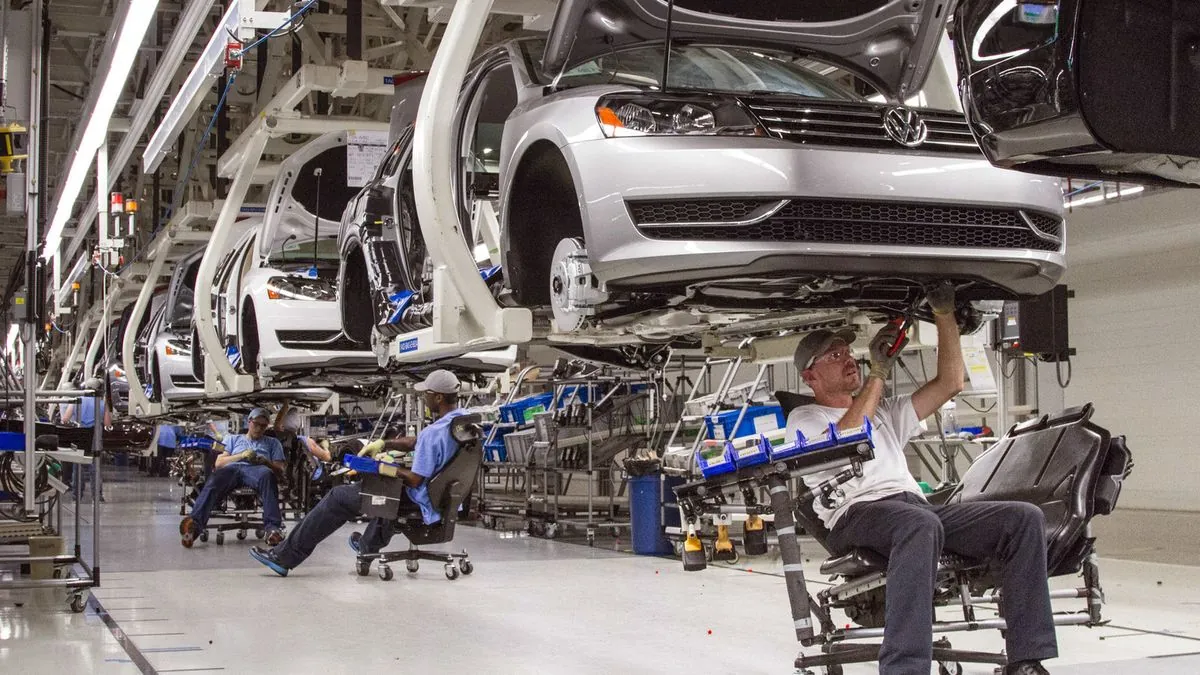IG Metall Proposes Four-Day Week at Volkswagen Amid Job Cut Fears
Germany's largest union suggests shorter work week at Volkswagen to save jobs, as the automaker considers factory closures. Economic challenges persist with downgraded growth forecasts and construction sector struggles.

In a bid to preserve employment, IG Metall, Germany's largest industrial union, has proposed implementing a four-day work week at Volkswagen. This suggestion comes as the automotive giant contemplates closing factories in Germany for the first time since its establishment in 1937, marking a significant shift in its 87-year history.
Volkswagen is aiming to achieve €10 billion in savings by 2026, driven by the challenges of transitioning to electric vehicles and the loss of affordable Russian gas. The company is considering terminating its long-standing job security program, which has safeguarded positions since 1994 and was set to continue until 2029.

The union's proposal reflects a growing global trend towards shorter work weeks, which has gained traction in recent years. IG Metall's chief, Christiane Benner, expressed openness to constructive discussions about such measures. However, the union has also warned of potential strikes involving 500,000 workers in late October 2024 if an agreement is not reached.
This situation unfolds against a backdrop of broader economic challenges in Germany. The country's economy, the largest in the European Union, is projected to experience no growth in 2024, with a modest 0.9% expansion forecasted for 2025. These figures, revised downward by the IFO Institute, reflect rising unemployment and increased household savings amidst economic uncertainty.
The construction sector, often considered an economic bellwether, is facing a deepening recession. Despite interest rate adjustments by the European Central Bank, the industry has seen declining activity and job losses, particularly in residential and commercial projects.
"Investors are already doubting our ability to reform, but especially our ability and our will to perform. More growth in Germany will come only if we also change our attitude to work; if we are prepared to work differently, but overall to work more and harder."
Christian Sewing, CEO of Deutsche Bank, Germany's largest banking institution, has called for a shift in work attitudes to stimulate economic recovery. His comments highlight the complex challenges facing the German economy, including demographic shifts and global competition.
As Volkswagen navigates this critical juncture, the outcome of negotiations with IG Metall could set a precedent for labor relations in Germany's crucial automotive sector. The situation underscores the delicate balance between maintaining job security and ensuring the competitiveness of a key industry in the face of technological and economic transformations.


































